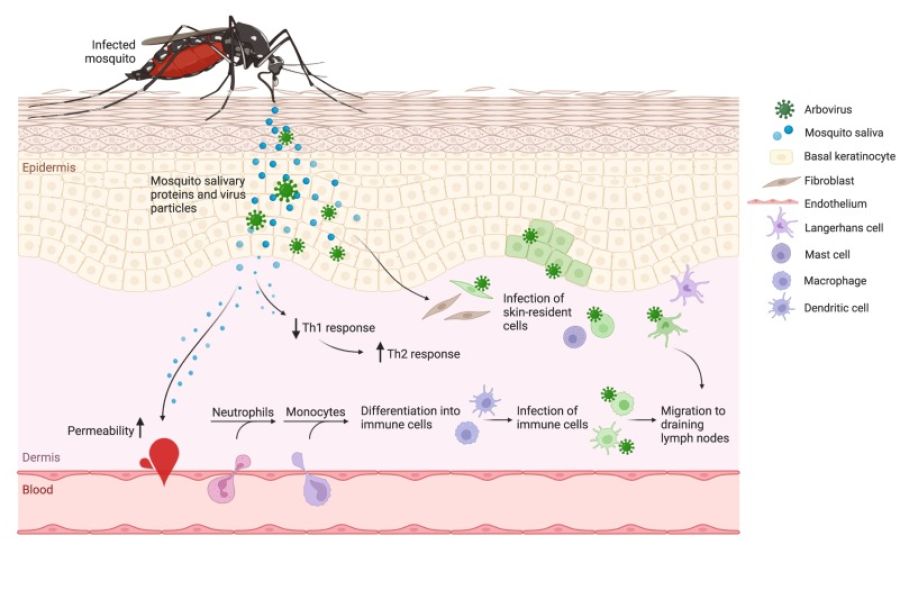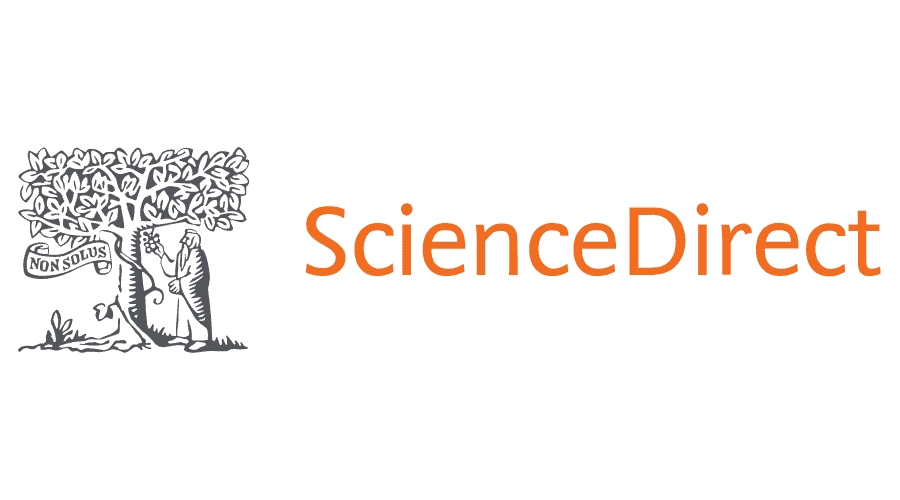The significance of mosquito saliva in arbovirus transmission and pathogenesis in the vertebrate host

This publication is part of the project ‘Preparing for vector-borne virus outbreaks in a changing world: a One Health Approach’ (NWA.1160.1S.210) which is (partly) financed by the Dutch Research Council (NWO).

Authors: Imke Visser, Constantianus J.M. Koenraadt, Marion P.G. Koopmans, Barry Rockx
Abstract
Due to changes in climate, numerous mosquito species are continuously extending their geographical distributions, posing potential new public health threats as arbovirus infections emerge in these new areas. During probing and feeding on the vertebrate host, a mosquito can inject both arbovirus and saliva into the skin of the host. The presence of mosquito saliva in the host skin during arbovirus transmission contributes to high viral titers in the skin, enhanced viremia, and rapid dissemination of the virus to target organs. This enhanced phenotype effectuated by the presence of mosquito saliva in the skin can be partly ascribed to a polarization of the local immune balance towards a Th2 response, an increased permeability of the dermal endothelium, and the influx of virus-susceptible immune cells to the bite site. However, the complete identification and characterization of immunomodulatory salivary proteins from different mosquito species and the mechanisms by which these salivary proteins exert their effects synergistically or antagonistically remains to be further explored. Moreover, the effect of new virus-vector combinations on the outcome of arbovirus infection in a new host is limited. Here, we review the immunomodulatory effects of mosquito saliva in the skin and the proposed mechanisms by which mosquito saliva enhances arbovirus pathogenesis in the vertebrate host, and discuss potential differences between Aedes and Culex mosquito species, the main vectors for medically important arboviruses. Gaining more insight into the effect of mosquito saliva in the vector-virus-host triad aids in predicting the potential transmission risk and disease severity of emerging vector-borne diseases.
Source: ScienceDirect
Date: February 22th, 2023